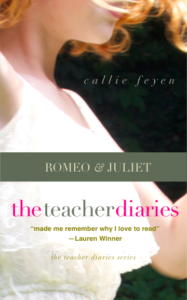I am writing this on an afternoon when my daughter Hadley is across the hall from me, organizing her school supplies for her first year of middle school. While her sister has asked for clothes and shoes, Hadley’s been more interested in supplies and how to decorate her locker.
It’s been a few days since we went school shopping, but she’s had the purchases, nice and neat, on a small shag carpet in her room. She wrote her schedule on every possible notebook, folder, and pack of sticky notes. I think Hadley even found a way to make a small coded message regarding her daily routine on the back of her combination lock.
“Hey, Google,” I hear her say to the Google Mini we bought her after she presented us with a slide show highlighting reasons why she ought to have one. “Set the timer for 45 seconds.”
“OK,” the robot says. “Timer is set.”
Hadley sings her ABCs.
I’m not sure what her objective is: To see if she can sing them faster than 45 seconds? To make sure she remembers her letters?
The alphabet song is the first one Hadley learned, and she sang it with conviction and passion. It was as though her 2-year-old soul believed with every ounce of her being that knowing her letters meant she held power and magic and, by singing, she proclaimed that this was only a beginning of what it was she would now be able to do.
I wonder if that’s what Hadley’s doing now, this Sunday afternoon before middle school begins. I wonder if she is remembering her 2-year-old soul and all she believed she could do and become because now she knows her ABCs.
Hadley is a changed and changing person. I hope that’s always the case, but I also hope that she is a version of who she was when she first learned the alphabet. That’s what I hope for all of us, and while we might not remember our toddler years, we take moments and lessons with us — like the alphabet — and grow with them. And they grow with us.
This idea of growing reminds me of Marjorie Maddox’s poem “On Defining Education,” from her book of poetry True, False, None of the Above. In it, she riffs on words from Mark Twain: “Training is everything. The peach was once a bitter almond; cauliflower is nothing but cabbage with a college education.” She writes about the peach and the cauliflower — what these things are, what they can do and have done. “[Cauliflower] whole she’s the Cinderella that steals the show / for the truly hungry.”
I think Maddox’s poem is about not being so certain about the things we see in front of us. I think it reminds us to stay curious about our abilities as well as the abilities of others.
The last stanza is my favorite:
I’m not talking about who you should be
but are. Let’s start with the essence of the seed
and see what sprouts from there
I posted those words on my classroom door at the beginning of one school year. I hoped it would serve as an invitation: Let’s start with who we are and see where we can take ourselves.
“Mama?” Hadley begins, standing at my desk. She has her phone with her, and she places it on my notebook to show me the school bus route. Smacking cinnamon-flavored gum, she points to the route for our neighborhood and says, “I figured out which bus stop is closest, and I’m wondering if I can take a practice walk to it.”
Before I can tell her yes, she adds, “Daddy says it’s fine.”
“Smart move, asking Daddy first,” I tell her, making fun of my sometimes-anxious imagination. “Yes, it’s fine,” I say, and Hadley turns to leave.
“Hey,” I say, swiveling my chair to face her. “Why were you singing the ABCs?”
“Well,” she says, smacking her gum and sitting on the couch. “I drew all the emojis I have on my phone on pieces of paper.” She crosses her legs and leans back. “I wanted to see if I can flip one over, find the matching one on the phone, sing the ABCs, and do 10 push-ups in 45 seconds.”
Hadley blows a bubble and it pops with a satisfying smack. “I figure if I can do that, then I’m amazing.”
She stands up to leave, and I say, “You are amazing.”
I hope she never forgets it.
Try It
Think of a memory of learning, whether singing the alphabet song or some other aspect of your education, and write about it in a vignette or a poem. Don’t forget to begin with who you are. Remember what you learned and sing it with conviction and passion.
Featured Poem Excerpt
Thanks to everyone who participated in our recent poetry prompt. Here’s an excerpt from a poem by Richard Maxson we enjoyed:
Nineveh
Here is an unlikely place
for redemption. The road so named,
sliced at both ends by highway,
no longer reaches Fayetteville,
but divides the pasture land
from city homes, five to an acre.
To the fence they come to talk,
but don’t see the constellations
off a Dutch slope. They want
a faster life, more for less, new milk
in barn-gallons for a king’s gallon price.
…
—Richard Maxson
Photo By Tom Hall Creative Commons, via Flickr. Post by Post by Callie Feyen, author of The Teacher Diaries: Romeo and Juliet.
This is a book about being a teacher, and about being a mother, and, in its way, about being a writer. But it is most fully a depiction of living with a work of literature, about the conversations literature can spark and the memories literature can hold and reconfigure. The acknowledgments suggest that writing this book helped Callie Feyen remember why she loved teaching. Reading it made me remember why I love to read. —Lauren Winner, bestselling author and Associate Professor, Duke Divinity School
- Poetry Prompt: Courage to Follow - July 24, 2023
- Poetry Prompt: Being a Pilgrim and a Martha Stewart Homemaker - July 10, 2023
- Poetry Prompt: Monarch Butterfly’s Wildflower - June 19, 2023


Donna Falcone says
I hope not, too. ❤️
Callie Feyen says
🙂
Richard Maxson says
Callie, what a lovely story in this week’s prompt.
Alphabet poems are a challenge and Marjorie Maddox is a master at the form. We will be featuring more than one of her poems this month.
Thank you for featuring the excerpt of “Nineveh.”
Callie Feyen says
Thank you, Richard.
L.L. Barkat says
I loved this story, Callie. Sing, child, sing! 🙂
This is probably not quite what you were looking for regarding a “learning” poem, but it came to mind from my Love, Etc.:
Christmas
I learned patience
on the floor.
I can still feel the lines
of our linoleum
under my fingers
as I crawled and stifled
my breathing,
listening to his breathing
heavy with smoke
and the day’s curses
sloughing off
into night, into the unliving
living room.
Snow outside,
ice within, pristine
as the waterfall
now paralyzed out back.
On the paneled wall,
near the windowed door
hung a plush red stocking
filled by my mother’s hand.
I crawled for hours,
it seemed, to reach
that velvet candy cane.
Callie Feyen says
Oh, I think this is a learning poem. At first it is startling (I can feel the linoleum, the ice, and I feel myself reaching for that “plush red stocking” while holding my breath). But I also feel the work of hope and optimism, and I understand that crawling towards these things is hard and scary and confusing. The waterfall might’ve been paralyzed, but there is hopeful movement in this poem. Thank you.